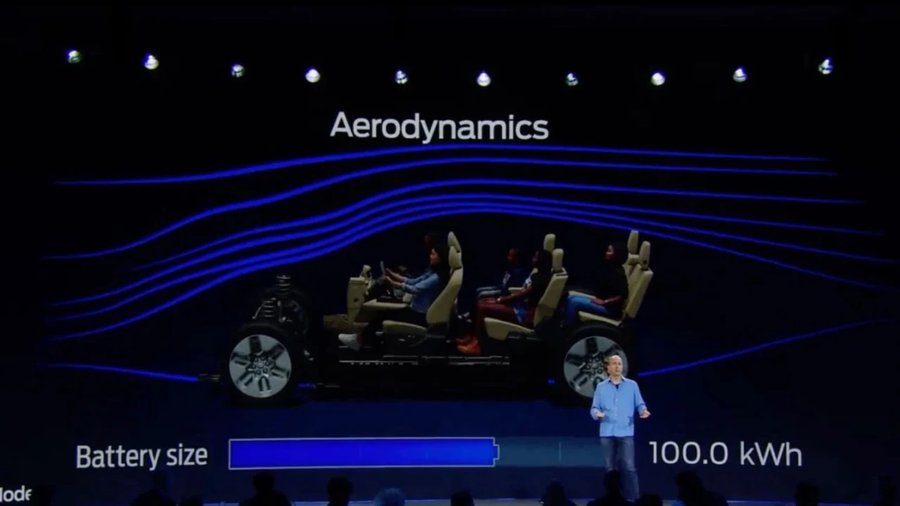Ford cancels seven-seat electric SUV in profitability push

Ford has scrapped its plan to launch a three-row, seven-seat electric SUV next year, warning that the move could cost the company $1.9 billion (£1.5bn).
It has been cancelled because it would not have been profitable within the first year of its launch.
The company highlighted the increasing cost-consciousness of new electric car buyers, as well as the “scores of new electric vehicle choices hitting the market over the next 12 months” as factors limiting the model’s viability.
Ford will now prioritise the development of new hybrid three-row SUVs, reducing its annual spend on electric vehicles from 40% of its total investment to 30%.
In turn, the ‘T3’ electric pick-up has been delayed from next year to the second half of 2027. This will allow Ford to adapt the model to use less expensive batteries, it said.
The news about Ford’s US-focused electric cars comes as it shifts its focus in Europe towards more affordable electric SUVs, with successors to the Fiesta and Focus mooted for launch around 2026 and 2027.
An electric Ford Puma, named the Gen-E, will arrive later this year.
“If you look at our line-up globally, at this point we don’t really have much in the affordable segment,” Marin Gjaja, chief operating officer of Ford’s Model E division, recently told Autocar.
Gjaja added: “The key for us is to be affordable, differentiated and profitable. For too long we stayed in the affordable segment, either at break-even or losing money.
“The question is: how do you compete in that segment, especially if you have got a very low-cost manufacturing location like China pumping out affordable vehicles?
“That’s the dilemma. There’s no question that if we’re going to be a true mass brand, we want people to graduate to a vehicle like Explorer, but where do you start them? That’s what we’re doing in the US with an affordable platform, and there’s no reason why that platform wouldn’t be able to create products for Europe as well.”
